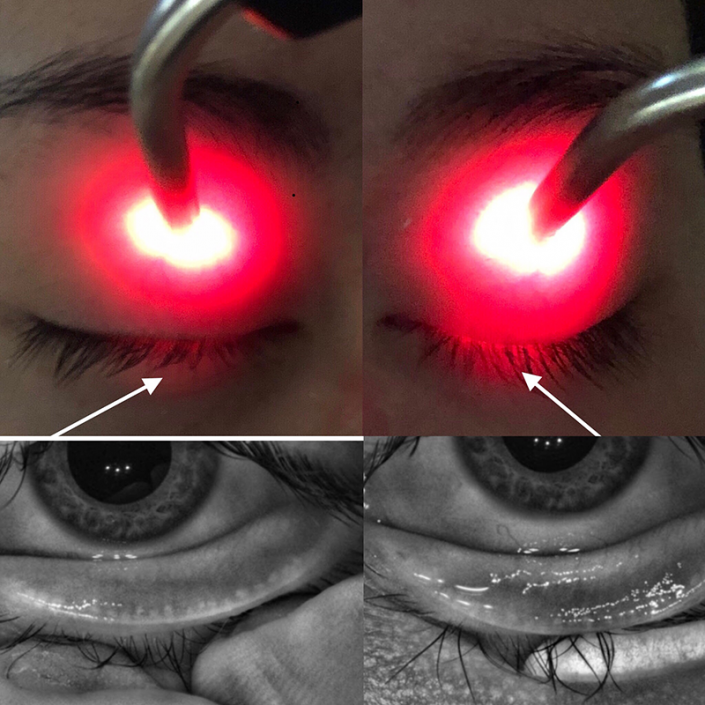
Check your bedroom for allergens-detergents used to wash the sheets, dust, mold, or letting pets sleep in your bed can all trigger allergies.Īir conditioning/dry air: Houstonians love their air conditioning, and for good reason.
NOCTURNAL LAGOPHTHALMOS TV
Inadequate sleep can worsen dry eyes at night, especially if you’re staying up watching TV or if you already struggle with dry eyes during the day.Īllergies: While they do so in different ways than described above, allergies can also cause dry eyes. Your eyes need rest and benefit from a break from exposure to the air. Inadequate sleep: Not getting enough sleep? Your eyes may be suffering along with the rest of your body. For more info, read up on eye damage from cell phone use. Since blinking replenishes the lubricating layer of tears to your eyes, staring at your phone, TV, or computer for long periods can lead to eye strain and dry eyes both during the day and at night. We blink at a lower rate while looking at screens. Nighttime technology hygiene : If you’re accustomed to scrolling through Instagram to help you wind down or to falling asleep to Netflix, this extra screen time could be contributing to your dry eyes. While these important changes allow your organs to rest, they can also contribute to dry eyes at night decreased organ function means the production of fewer tears, and lower blood pressure means your eyes are receiving fewer nutrients via blood circulation. If you sleep with your eyes half-open, the extra exposure of the surface of your eye to air may be causing your tears to evaporate at a faster rate than normal.Ĭhanges in nighttime metabolism: At night, your body’s metabolism slows down and your blood pressure drops naturally. It’s thought to be caused primarily by weaknesses in the facial nerves, particularly the seventh cranial nerve. Nocturnal lagophthalmos: Nocturnal lagophthalmos is your body’s inability to close the eyelids completely while you’re sleeping. Are there any conditions in particular that lead to dry eyes at night? As a matter of fact, yes-and more than you might suspect. Wind, smoke, dry air-all of these contributing factors to dry eyes occur during the daytime. In the meantime, your LASIK doctor will likely recommend either OTC, preservative-free eye drops after LASIK or a prescription variant. While it’s common for patients to experience dry eyes after LASIK, this issue typically resolves within a month. Laser eye procedures such as LASIK and PRK can also cause daytime dry eyes. As a result, those who suffer from dry eyes may actually have excessively watery eyes. However, these tears will not have the same consistency as lubricating tears. In some cases, these conditions will “send out a signal” for more moisture, and the body will “respond” by “sending” additional tears. When these aberrations occur, patients are likely to experience eye discomfort (including itching, burning, and grittiness), redness, and light sensitivity. Not enough tears being produced ( keratoconjunctivitis sicca)įor more information on what environmental elements, risk factors, medications, diseases, and other conditions contribute to these three problems, please read our comprehensive article: Dry Eye Syndrome.In other words, dry eye syndrome is typically caused by either one or a combination of the following issues: When something affects the rate at which tears are produced, the rate at which tears evaporate, and the composition of the tears, dry eye syndrome can occur. Tears actually have a very specific composition they must contain the right amounts of water, mucus, oils, and antibodies to keep your eyes covered in an even and safe lubricated coat.

That’s because, more often than not, daytime eye dryness contributes to patients having dry eyes at night.ĭry eye syndrome occurs when your eyes are not receiving adequate moisture in the form of tears. Understanding dry eye syndromeīefore we get into the specifics of dry eyes at night, it’s important that we cover the basics of daytime dry eye syndrome.

Discover the reasons you may be waking up with dry, gritty eyes-and what you can do to find relief. What is it about the nighttime that causes so many people to experience an uptick in dry eye symptoms?Īs it turns out, a surprising multitude of factors can contribute to patients experiencing dry eyes at night. Most people have a basic idea of what causes dry eyes during the day but are stumped when it comes to identifying what causes dry eyes at night.


 0 kommentar(er)
0 kommentar(er)
